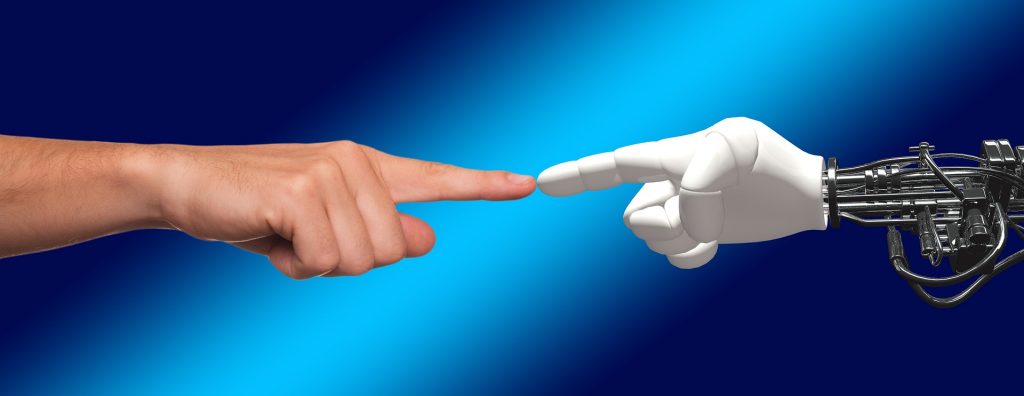Do you know adopting Artificial Intelligence impact and transform your industry completely?
It helps to improve the hotel reputation, increase customer sales and takes customer experience to a higher level.
Artificial intelligence is quite popular among many prominent hotels brands in the hospitality industry.
Now bigger brands such as Marriot International, Hilton Hotels and Resorts started to use Artificial Intelligence.
Artificial Intelligence impacts and redefines the current industry standard for personalized guest experiences.

Below are the ways in which artificial intelligence impact the hotel industry
Simplify Hotel Operation
Artificial Intelligence impact hotels in numerous ways and one of them is by using of chatbots.
Practically, it is not possible for hoteliers to attend guests at the reception desk, respond to call and even answer online queries at the same time.
To solve this problem, hoteliers are using chatbot messaging services.
Chatbots are a blessing in helping your employees cope with multiple guests.
It not only increases the guest’s convenience but also reduce labour costs.
Further, it is available in multiple languages which provides extra ease for guests, who want to ask queries in the native language.
Eventually, chatbots overcome the language barrier effortlessly with visitors from around the world.
Thus, hoteliers can solve guests queries at the front desk and gives them undivided attention.
While chatbot takes care of online queries of potential guests.
They are available 24/7, offer fast delivery services, and many personalize room booking options.
Internet of things and intelligence of things
With the adoption of the Internet of Things(IoT), everyone is using wearable devices while doing various activities.
For instance- monitoring in minute detail of their body temperature, energy level, and respiratory movements to get customized fitness solutions.
Hence, hoteliers to deliver excellent guest-friendly services establish artificial intelligence in the hotel industry.
It enables hotels to deliver services matching guests preferences, recommending books, sports club, local museums to complement customers taste.
It makes it easier for hotel staff to serve guests with personalized meal services, special privileges, complementary services, etc.
Hotel operations network can communicate seamlessly with the real world through integrated apps, sensors, and machine learning.
Thus, leaving guests with more personalized experiences.
Management of Revenue
When traditional services are automated they outperform their human counterpart.
Eventually, it will improve the hotel’s efficiency and save time.
Which only gives employees time to focus on the human aspects of the service they provide.
For instance-using Property Management System to manage booking and update rates across numerous distribution channels.
Further, a cloud-based Property Management System gives you some other benefits.
A channel manager’s machine learning algorithms can analyze big data to give you the best rate per room.
And update it automatically across all channels.
Ultimately, allowing you to maximize revenue while significantly reducing the effort involved in achieving those results.
An integrated hotel management software has low maintenance cost and customizable features.
Thus, encouraging your hotel to choose the resources that best meet the needs of your hotel.
Advising competitive intelligence
Artificial intelligence-driven competitive intelligence services convert data into intelligence and offer a real-time view of the competitive environment.
This helps to drive the future direction of your hotel business.
Machine algorithms help detect patterns and perspectives through large data sources and make quicker decisions.
It position businesses to succeed in real-time or even in advance.
Competitive intelligence means the efforts of the company to collect and analyze information.
About its industry, business environment, competitors, and competitive products and services.
Collecting the information and the analysis will support the strategy of a company as well as identify competitive gaps.
For instance-Data from surveys and local feedback will be used to decide what sort of hotel to build.
And precisely what services and facilities will better align with your target market.
Brand reputation
With the advancement in technologies, hoteliers find it easy to engage and handle their guests with much more exciting hospitality service via voice technology.
Voice technology and IoT (Internet of Things) devices link virtual assistance.
Hence, making guests enjoy smart space and smart services.
For example-guests are using mobile apps to check-in and check-out.
Virtual keys in mobile apps also provide other benefits like controlling air conditioner, light intensity, etc.
Artificial Intelligence, Internet of Things and virtual assistants joint capacity caters to hotel guests on the next level by exposing them to a range of luxuries, facilities, best spots, exclusive attractions, etc.
Hence, resulting in automated guests services for an upscale hotel.
Thus building a much brighter outlook for hotel brands.
Hotel Marketing is becoming more emotional and impactful
The term personalized marketing is commonly used by advertisers to bring value to their promotional campaigns.
Nowadays, hoteliers are using human emotions and sensations in making marketing strategies.
In hospitality, artificial intelligence and predictive analytics fuel the personalized marketing campaigns that best suit clients.
For Instance- using personalized messages to target customers.
Eventually, it leads to faster growth in hotels using AI as compared those hotels which are using the traditional approach.
So, hoteliers with the use of Artificial Intelligence should work on decodings emotions to frame successful marketing strategies to grow their business.
AI will collect information about customers and marketing experts use it to create marketing messages.
Conclusion
Today, the industry is rapidly moving towards Artificial Intelligence enable experiences across the entire property.
The hotels are using Artificial Intelligence in the form of chatbot messaging to solve online queries of guests.
Secondly, using competitive intelligence services to drive the future direction of the hotels business.
By converting data into intelligence and offer a real-time view of the competitive environment.
Further, voice technology and the Internet of Things provide various benefits to guests.
Like controlling air conditioner or exposing them to beautiful attractions, a range of luxuries and many more.
Please share views in the comment box.
If you want to learn about the functionality of QloApps then you can visit this link: QLO Reservation System – Free Open-Source Hotel Booking & Reservation System
In case of any query, issue or requirement please feel free to raise it on QloApps Forum

Be the first to comment.